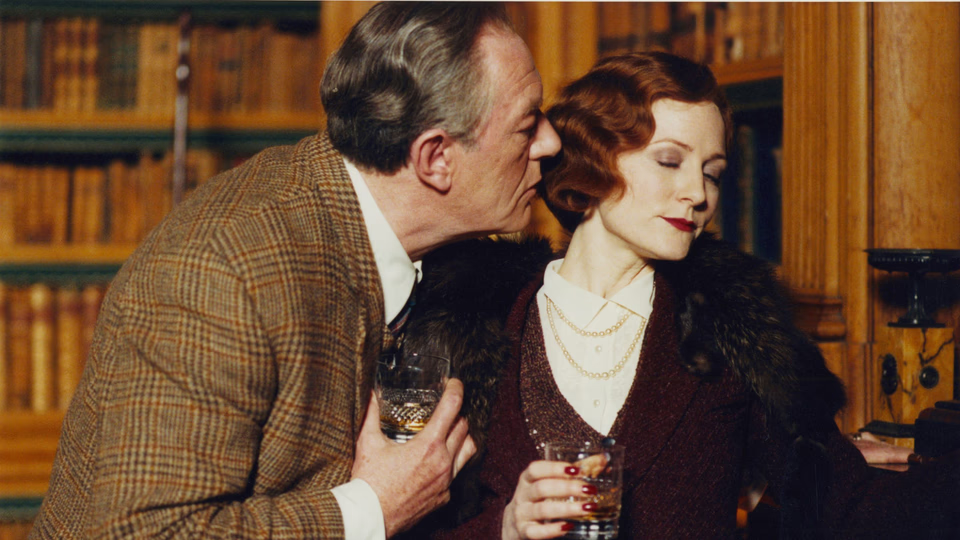Gosford Park

In 1932 England, Sir William McCordle hosts a hunting party at his palatial country estate, the titular Gosford Park. Assorted secrets and betrayals emerge among the upstairs gentry and downstairs help. When someone falls victim to an unseen killer, almost everyone has a motive.
A literal darker version of Downton Abbey, Gosford Park opens with overcast skies that give way to rain as the guests arrive. Director Robert Altman crafts an immersive experience with overlapping dialogue spanning several plot threads. While the introduction dizzies as we meet the various players, Altman’s invisible steady hand guides us through the house, ensuring we catch the important bits and reassuring us we’ll pick up what we missed later.
This proves true, and the various subplots coalesce. Sir William plans to exit a business deal knowing it will ruin an in-law. A maid is having an affair with someone upstairs. Two guests harbor secret identities. One guest blackmails another about an affair and abortion. Sir William threatens to withhold an allowance out of spite. By the time the murder occurs, we’ve identified a plethora of suspects but lean toward one in particular. How the film rewards our intuition while still surprising us proves a terrific twist.
But the murder mystery itself feels perfunctory, as though the setting requires it. Altman seems less interested in genre trappings than stepping back and observing life in this world as dark satire. The ever-present layers of hierarchy. The unspoken canons between the upstairs and downstairs residents and their internal etiquettes.
Most fascinating is the gentry’s subtle distinction between considering the servants invisible versus acknowledging but ignoring them. It proves the ultimate degradation. The gentry talk past the servants and think nothing of their feelings, yet remain aware of their presence and how gossip spreads.
Altman presents these behaviors as matter-of-fact, leaving the viewer to react as they will. He paints a scathing picture of a vapid, elitist society but one that feels authentic rather than heightened thanks to Altman’s passive gaze.
The cast shines throughout, from Michael Gambon’s brutish performance as Sir William to Kelly Macdonald as an audience surrogate struggling to understand the unspoken rules and hinted secrets. Even Ryan Phillippe, who at first appears miscast, feels natural. Only Clive Owen feels off as a valet. His innate charisma and leading man looks make him feel out of place downstairs. A minor quibble.
Gosford Park screenwriter Julian Fellowes would create Downton Abbey nine years later, recycling the setting and archetypes (and, in the case of Maggie Smith, the cast) but excising the satire in favor of a romantic, almost nostalgic lens.
The difference between this film and that series is perhaps best reflected in their durations. Downton Abbey ran for fifty-two episodes and two movies, reflecting a continued desire by viewers to return. By the end of Gosford Park, like the guests, we’re ready to exit the estate and its rampant corruption. Not that we didn’t enjoy our stay, but we’re glad to come home.